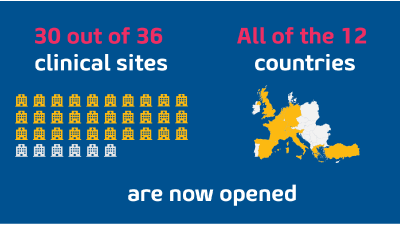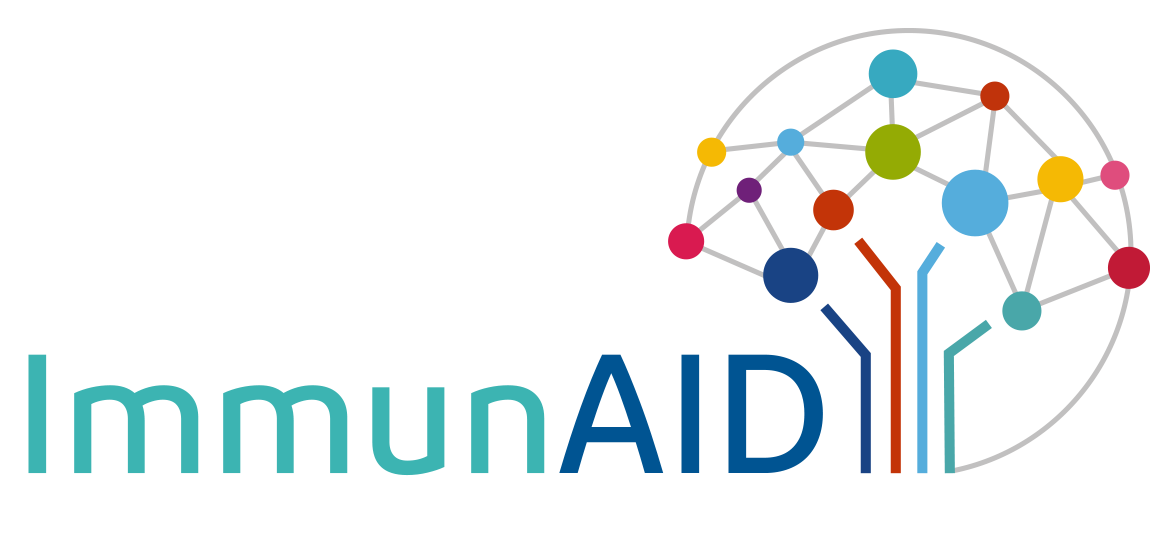
IMMUNAID, the European project willing to identify biomarkers for the diagnosis of rare systemic autoinflammatory diseases, has now opened clinical sites in all participating countries, reaching more than 75% of the full recruitment capacity. Importantly, 20% of the cohort has already been enrolled.
The ImmunAID project aims to identify new tools for the diagnosis of systemic autoinflammatory diseases (SAID). The aim is to provide better care for patients with rare diseases.
SAID are a complex and little-known group of rare diseases characterised by strong inflammation. These diseases are caused by a deregulation of the patient's innate immune system.
In order to achieve the project's objectives, patients suffering from SAID are being recruited throughout Europe.
The recruitment campaign is now active in all countries: France, Spain, Slovenia, Switzerland, Belgium, United Kingdom, Greece, Germany, Netherlands, Italy and Turkey. And although the COVID-19 pandemic has been significantly hampering the process and the ability of patients to visit hospitals, the recruitment pace is now steadily increasing. With the COVID pandemics above all the administrative paperwork, the centre opening process - which started in December 2019 – was close to Hercules work… But we did it! After 18 months, the study is active in the 11 partner countries.

As of today, 146 patients have been recruited, which represents more than 20% of the whole cohort of 716 individuals. “The reaching of this milestone is very encouraging, since the recruitment criteria are a bit challenging, says Pr. Fautrel, and it is reflecting the commitment of the involved clinical centres. We need to keep up the good work!”.
Patients have been recruited in every disease category (see the complete list of genetically undiagnosed SAID (guSAID) and monogenic SAID (mSAID) considered in the project). “Overall, we are making good progress, although it appeared somewhat more difficult than expected to enrol patients suffering from disorders such as Takayasu and Kawasaki vasculitis, neutrophilic dermatosis or non-FMF mSAID”, comments Pr. Fautrel. “I think this is the other side of the coin: we have quite efficient treatments nowadays, and it makes more difficult to capture patients with active disease”
The Leeds Teaching Hospitals NHS Trust is among the latest centres opened. Sinisa Savic, Clinical Associate Professor, leads the Department of Clinical Immunology and Allergy there and provides care for patients with primary immunodeficiencies, systemic autoinflammatory disorders and allergies. Sinisa is highly committed to improve patient management and really willing to contribute to the setup of the ImmunAID cohort. “The management of such patients is definitely a challenge, each patient being particular and different from the other. This is where the ImmunAID project can really make a difference in terms of diagnosis and future management of our patients.”
Two centres have also been opened in Turkey: the Hacettepe University hospital and the Marmara University hospital. Pr. Umut Kalyoncu is the Turkish national coordinator there for ImmunAID and he is delighted to have Turkey participating in the study. “Turkey is a country where SAID, especially FMF, Takayasu Arteritis and Behçet disease, are highly prevalent. This is why we are so excited to start recruiting patients for the project… At last, should I say, after all the troubles related to the COVID pandemic”
Hoping the pandemic situation could somehow stabilise in Europe, the ImmunAID team is doing its best to generate the collection of samples required to enable all the biological and computational studies.



